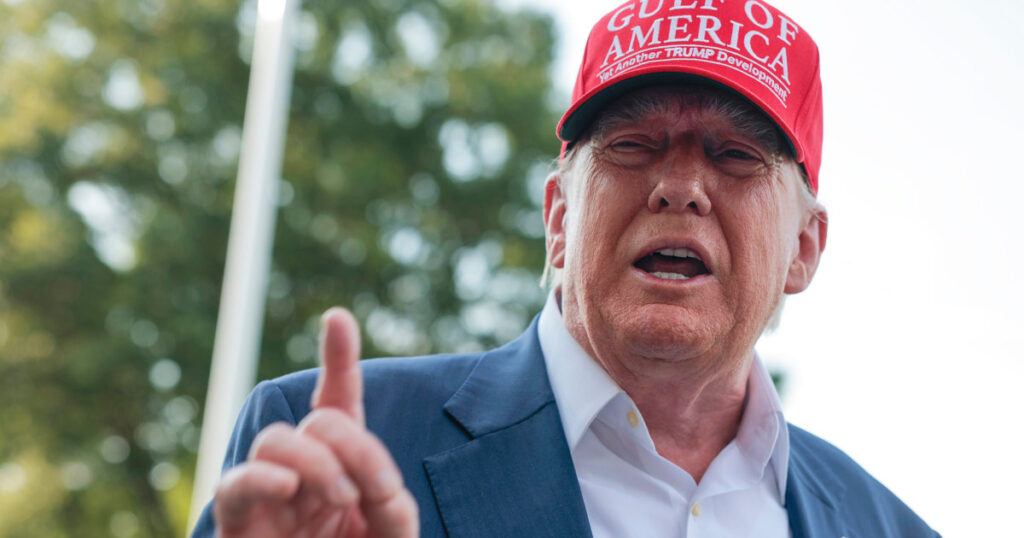Paramount has agreed to a $16 million settlement to resolve a lawsuit filed by former President Donald Trump. The lawsuit alleged that a “60 Minutes” interview with Kamala Harris, his Democratic opponent in the 2020 presidential election, was deceptively edited. This agreement, proposed by a mediator, includes plaintiffs’ fees and costs, with the remaining funds allocated to Trump’s future presidential library, according to a statement released by Paramount Global late Tuesday.
The lawsuit, initially filed in the Northern District of Texas, sought a staggering $20 billion in damages. Paramount, the parent company of CBS, stated that the settlement would release all claims against CBS reporting up to the settlement date, including the Texas action and any potential defamation suits. Neither CBS News nor the White House provided immediate comments on the settlement.
Background and Legal Context
The legal battle began when Trump, joined by his former doctor, Rep. Ronny Jackson, R-TX, as a plaintiff, accused CBS of manipulating the interview footage to misrepresent Harris’s responses. The lawsuit highlighted the ongoing tensions between Trump and media outlets during and after his presidency, often marked by accusations of bias and unfair reporting.
Under the terms of the settlement, neither Trump nor Jackson will receive direct or indirect payments. Paramount has also committed to releasing transcripts of “60 Minutes” interviews with eligible U.S. presidential candidates post-broadcast, albeit with necessary redactions for legal or national security reasons. Notably, the settlement does not include any apology or expression of regret from Paramount.
Implications for Media and Politics
This settlement arrives at a critical juncture for Paramount, which is in the process of completing an $8 billion merger with Skydance Media. The merger, requiring approval from the Trump administration, has sparked internal tensions at CBS News. In May, Wendy McMahon resigned as head of CBS News, citing disagreements over the company’s strategic direction. This followed the departure of Bill Owens, a key producer at “60 Minutes,” who expressed concerns over his journalistic independence being compromised.
According to media analyst Jane Doe, “The settlement and its timing could be seen as a strategic move by Paramount to smooth the path for its merger with Skydance. However, it also raises questions about the influence of political pressures on media operations.”
Historical Parallels and Future Considerations
Historically, tensions between political figures and media outlets are not new. The Nixon administration famously battled with the press, culminating in legal confrontations over the Pentagon Papers. Similarly, Trump’s presidency was characterized by frequent clashes with media organizations, often labeling them as “fake news.”
The settlement also highlights the ongoing debate over media accountability and transparency. The decision to release interview transcripts could set a precedent for future media practices, potentially increasing transparency but also raising concerns over editorial freedom and the potential for increased legal scrutiny.
“The settlement does not include a statement of apology or regret,” Paramount stated, underscoring the complex interplay between legal settlements and public perception.
As Paramount navigates its merger and the evolving media landscape, the implications of this settlement may extend beyond the immediate financial and legal outcomes, influencing future interactions between media conglomerates and political figures.
Looking ahead, the media industry will be closely watching how this settlement impacts Paramount’s merger process and whether it prompts similar actions from other media companies. The outcome could shape the relationship between media and politics in the years to come.
About The Author
 Japan’s Upper House Election: A Crucial Test for Prime Minister Ishiba
Japan’s Upper House Election: A Crucial Test for Prime Minister Ishiba Dalai Lama Affirms Continuation of Spiritual Lineage Amidst Chinese Tensions
Dalai Lama Affirms Continuation of Spiritual Lineage Amidst Chinese Tensions Rwanda’s Influence Over M23 Rebels in Eastern Congo Unveiled by UN Report
Rwanda’s Influence Over M23 Rebels in Eastern Congo Unveiled by UN Report Trump Casts Doubt on US-Japan Trade Deal Amid Tariff Tensions
Trump Casts Doubt on US-Japan Trade Deal Amid Tariff Tensions Iran Halts Cooperation with UN Nuclear Watchdog Amid Rising Tensions
Iran Halts Cooperation with UN Nuclear Watchdog Amid Rising Tensions